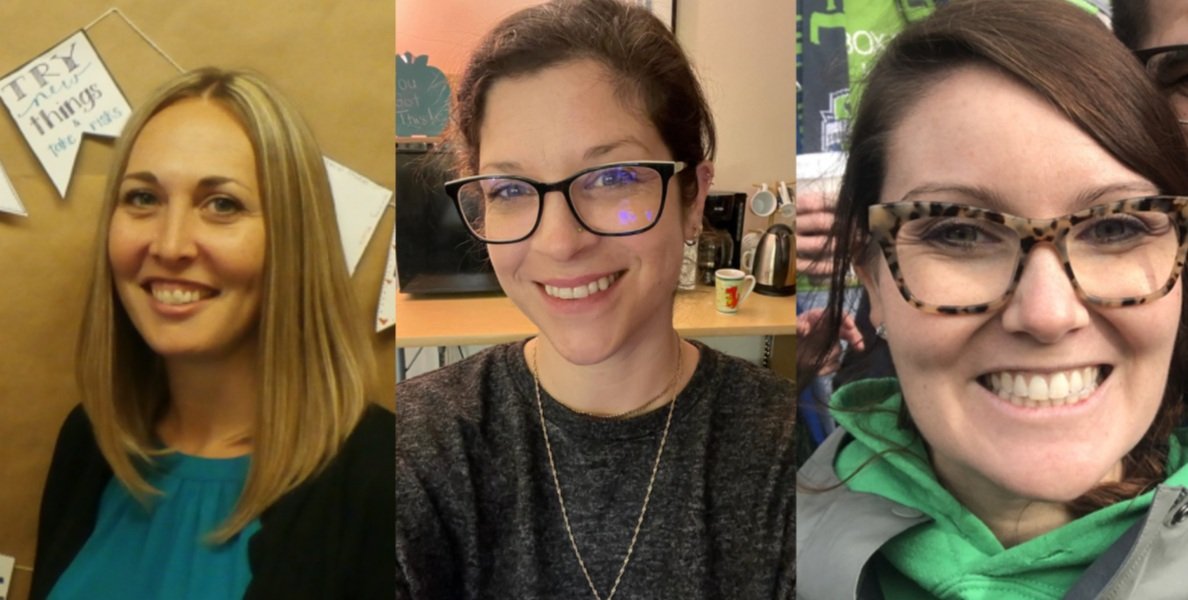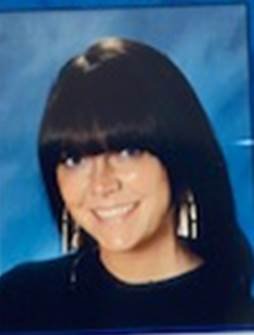.jpg)
David, a fifth-grader at Honey Dew Elementary School, and his teacher, Amanda Smiley
David—a fifth-grader at Honey Dew Elementary School in Renton, WA—has been struggling this school year with adding fractions. A few weeks ago, though, he took an ANet interim assessment that helped his teacher, Amanda Smiley, to recognize just how much and in what ways he has been struggling with that particular concept. Since then, she has been able to give David extra help with adding fractions and even communicate with his family so his father could help him practice adding fractions at home. He is already feeling better about adding fractions, thanks largely to the targeted support he received as a result of the ANet interim.
David says he has taken these assessments “three or four times a year” since his school began partnering with ANet in 2019 and that he knows just how critical they are to his education. He says, “it’s important for your teacher to know what you need to learn. If you rush through your test… then your teacher won’t know what you need to work on.” After each assessment, he looks forward to having a conversation with Ms. Smiley about what he did well and what kind of support she will offer him to continue to grow. Even when the assessment is tough and he doesn’t necessarily do the best, David knows, “when you’re wrong, you always learn something from your mistakes.”
This kind of student investment didn’t happen overnight.

Honey Dew’s instructional leadership team from left to right, Principal Misty Mbadugha, Title I Math Coach Becca L’Amour, and ELA Instructional Facilitator Brooke Argotsinger
When Principal Misty Mbadugha joined Honey Dew in 2014, she arrived at a school with a seemingly strong culture; the community was tight-knit, teachers believed in students, and students, families, teachers and leaders were generally happy at Honey Dew. But something was missing—students were happy, but were they truly learning? Mbadugha was not convinced that the answer was yes, so she took steps to change that.
Determined to ensure that her students had access to equitable instruction, Mbadugha reached out to Achievement Network in 2019 to embark on a multi-year school partnership that was rooted in the teaching and learning cycle and that would ultimately enable her teachers and school leaders to achieve breakthrough results for their students.
Honey Dew’s instructional leadership team—which includes Mbadugha as well as Becca L’Amour, Title I Math Coach, and Brooke Argotsinger, ELA Instructional Facilitator—spent much of their first year of partnership “inside the box,” says Mbadugha; they built a relationship with their coach and relied on ANet's expertise with standards, planning, assessments and data to guide them as they grew their own capacity as instructional leaders. Much of that first year was dedicated to developing an extensive understanding of the various stages of the teaching and learning cycle and the impact it can have on students’ academic achievement.
Eventually, the school’s instructional leadership team came to understand that truly effective cycles of teaching and learning must be responsive to the needs of the community engaged in the cycle, and they took steps to adapt it to fit the unique needs of Honey Dew’s teachers and students. L’Amour recalls one less-than-successful professional learning session she led alongside Honey Dew’s then-coach, Lysa Scott. After the PL wrapped up, Scott asked L’Amour how she thought the session had gone. L’Amour told her, “I [don’t] think it went great.”
So Scott asked her, “Then why didn’t you change it?” It was at that moment that L’Amour realized that the progress they had made during their first year of partnership and the coaching they had received from ANet had increased her own agency as an instructional leader as well as the collective efficacy of Honey Dew’s instructional leadership team. L’Amour was not only capable of recognizing that the PL session had been ineffective, but she was also able to see what needed to be done to “right the ship.” From there L’Amour, Mbadugha, and Argotsinger were able to make strategic shifts in the professional learning strategy for their teachers as well as adapt the teaching and learning cycle in ways that would ensure better outcomes for Honey Dew’s students.
They have continued to grow their capacity as instructional leaders alongside their current ANet coach, Nora Rahim. After spending the first two years of their partnership primarily focused on improving mathematics, the team is shifting this year to a focus on literacy. ELA Facilitator Brooke Argotsinger says that the shift has been going well. She cites the immense amount of trust that was established during the school’s period of focusing on mathematics as the primary reason that teachers are so receptive to working alongside ANet to improve their instructional practices in literacy this year.
Once the school leaders had developed a strong understanding of their own teaching and learning cycle and grown their own capacity as instructional leaders, they were able to bring along teachers in their understanding as well.
.jpg)
Fourth-grade teacher Andrea Lauritsen
Fourth-grade teacher Andrea Lauritsen has been at Honey Dew for four years, spending a full year teaching there prior to the school’s partnership with ANet. Lauritsen says she was hesitant at first to make the shifts that ANet asked of her but that her relationship with Becca L’Amour was what pushed her to begin using the teaching and learning cycle to inform her planning and instruction. She says, “I straight up did not understand the point of this when we started doing it. Now [though], after having the experience of having worked with [the teaching and learning cycle] for two and a half years, it’s been so beneficial to me as a teacher and for my students.”
Lauritsen recalls that prior to Honey Dew’s partnership with ANet, instructional planning at Honey Dew was largely rooted in the curriculum itself, and not terribly effective. Now, though, Lauritsen and other teachers are constantly engaging in larger and smaller teaching and learning cycles; there are the larger cycles that take place across weeks and months and semesters and school years, beginning with the interim assessment preview and standards-based planning, but there are also constant mini-cycles that occur live during classroom instruction; teachers use checks for understanding, Do Nows, and exit tickets to assess students’ understanding of concepts and then are able to adapt in the moment to ensure that their students leave lessons fully comprehending the concepts taught that day. These larger and smaller cycles of the teaching and learning cycle work cohesively to ensure that Honey Dew students are attaining equitable, grade-level instruction.
.png)
Second-grade teacher Alexis Rios
Second-grade teacher Alexis Rios joined Honey Dew after the partnership with ANet was already established. She says that the previews of ANet’s interim assessments in particular have helped her to grow as an educator because not only are teachers at Honey Dew expected to preview the assessments, they are expected to take the assessments too. This practice has helped Rios to build empathy for her students as well as forced her to face some of her own fears around instruction. Rios says, “Historically I have a lot of anxiety when it comes to math,” and that word problems, in particular, were difficult for her. But by working alongside Becca L’Amour, Rios has overcome her anxieties and even learned to love word problems.
Honey Dew teachers and leaders are now working to invest students and families in the teaching and learning cycle as well, their next step in prioritizing student learning and truly achieving a strong school culture.
Communication with families is grounded in the common language that the teaching and cycle provides, ensuring that everyone is on the same page regarding what needs to be done in order to see students achieve their goals for academic growth and success. Ahead of their most recent assessment, students watched this short video that shares the why behind them. Afterward, students are directly involved in the reflection stage of their own teaching and learning cycle through one-on-one conferences with their teachers where they dig into questions like these:
-
What did you understand?
-
What still confuses you?
-
How can your family support you?
-
What goals can you set for yourself?
This total investment in the teaching and learning cycle is enabling transformational change for Honey Dew students. In the 20/21 school year, students grew by 10% or more on 38% of standards that were assessed year over year. One teacher said, “Honestly, at the beginning of the year I thought it was crazy to focus on academics. I didn’t think there was any way we would make growth with all the barriers in our way, but then I look at this data and I see that we really did. It feels amazing.”
By investing all members of the Honey Dew Elementary School community—from teachers and leaders to students and families—in the teaching and learning cycle, students have been able to achieve truly breakthrough results.
